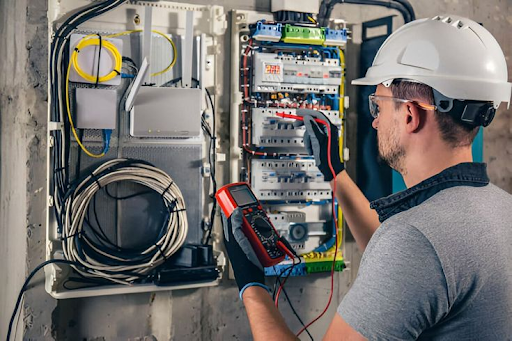As electric vehicles (EVs) continue to reshape the way we move, the demand for fast, reliable, and safe charging infrastructure is surging. Behind the scenes of every seamless charging experience lies a backbone of precise electrical work. Installing an EV charger isn’t as simple as plugging in a power strip—it’s a process that demands expertise, planning, and compliance with modern electrical codes. That’s where professional electrical services come into play, serving as the critical link between clean transportation and the power grid.
Understanding Electrical Infrastructure for EVs
Before an EV charger goes live, there’s a detailed assessment of the electrical load, panel capacity, circuit routing, and safety protocols. Each installation needs a tailored plan based on property type, charger speed, and vehicle usage. Residential and commercial spaces often vary in terms of available power, wiring age, and future upgrade potential. Electricians make these determinations with skill and foresight. The result is not just a functional charger, but a safe, scalable solution designed to meet long-term energy demands.
Electrical Services Ensure Safe and Scalable EV Charger Installation
The term electrical services refers to professional work involving wiring, system upgrades, power distribution, and load management. For EV charger installation, this means evaluating existing infrastructure and performing precise upgrades to handle increased electricity flow. Without this expertise, risks like power overload, poor grounding, and fire hazards become real threats. At the end of the process, it’s the quality of these services that defines the safety and success of any EV charger installation.
EV Charger Installation Requires More Than Just Plug-and-Play
The phrase EV charger installation sounds simple on the surface. But in reality, it’s a carefully orchestrated procedure involving permits, zoning, site layout, trenching (for commercial spaces), and exact connections to the main power supply. Whether you’re adding a Level 2 charger at home or installing multiple stations for fleet use, the installation process requires strategic power alignment. In the final steps, licensed professionals ensure voltage consistency, proper cable lengths, and adherence to building codes—all critical elements of a successful EV charger installation.
Integrating Smart Charging With Modern Electrical Services
Smart charging isn’t just a buzzword—it’s the future of energy efficiency. These systems communicate with power grids to draw energy during off-peak hours, saving money and reducing strain on the network. Professional electrical services include the technical setup for these intelligent systems. This means configuring software, syncing with energy management platforms, and integrating load-balancing features. These tasks require more than just hardware knowledge; they need a nuanced understanding of electrical ecosystems. That’s why the role of skilled electricians is vital at every stage of the process.
Training and Certification Matter in EV Charger Projects
Not every electrician is qualified to handle EV charger installations. Specialized certifications and manufacturer-approved training are essential. These credentials ensure familiarity with high-voltage systems, safety protocols, and specific charger models. Choosing a certified technician isn’t just a formality—it protects your property, ensures your system’s reliability, and preserves the warranty of your charging equipment. Electrical services that invest in training bring both safety and excellence to every job.
Conclusion
As EV adoption accelerates, the importance of expert electrical services becomes clearer than ever. From upgrading panels to fine-tuning software for smart charging, every detail matters. EV charger installation is far more than a hardware job—it’s an energy transformation guided by those who understand electricity best. With the right professionals in place, you’re not just installing a charger—you’re building a bridge to a cleaner, more connected future.


